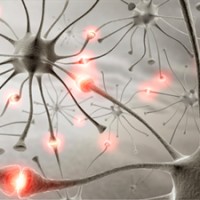Please note, what I am doing here is philosophy as informed by some very new research in the sciences. Memory deletion is NOT a reality. There is no clinic or hospital to go to have your memories erased. Please do not email me or comment with requests for help with trauma you have suffered. If…
Posted on May 16, 2011
In Brain Research, by Greg
Posted on January 16, 2011
In Brain Research, by Aki
For my first post on this blog, I’ve decided to write about the brain makes structural and functional changes. This topic is important because understanding neuroplasticity gives you a biological insight into things like memory consolidation, intelligence, cognitive training, education, and subliminal priming.
Posted on December 22, 2010
In Brain Research, by Greg
I’m a bit busy this week, so I’m going to post a TED talk that I found really interesting. The guy giving the talk is really over the top, and really cheesy, and yet the content of the talk is pretty inspired. I also find the name “connectome” to be pretty silly, but I try…
Posted on December 17, 2010
In agency, Brain Research, consciousness, by Greg
The BBC recently published a story about some research about free will, and I am yet again struck by the naive conceptions of free will so many of us have. The article discusses research that as far as I can tell claims that animals, even simple ones, have a range of options available to them,…
Posted on November 26, 2010
In Brain Research, ethics, by Greg
In interacting with other human beings we presuppose that people have their own thoughts and beliefs and desires and that these states can be judged objectively on the basis of this knowledge of them being separate and distinct beings from us. This understanding of the intentional states of others is called Theory of Mind. What are the mechanisms that underlie Theory of Mind, and how important are they in judgments regarding the actions of others?
Posted on November 22, 2010
In Brain Research, ethics, by Greg
Anyone who has even a basic familiarity with philosophy, or has stayed up late arguing with friends after a few drinks, has probably at one time or another been posed with some sort of hypothetical situation. Hypotheticals are both difficult to answer and interesting to contemplate precisely because we are posed with a situation we have never been in, and might never be in.





